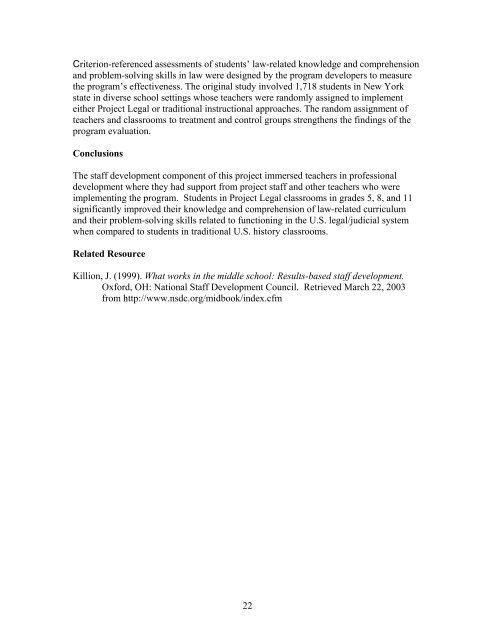Professional Development - Vol. IV, Part I
Professional Development - Vol. IV, Part I
Professional Development - Vol. IV, Part I
You also want an ePaper? Increase the reach of your titles
YUMPU automatically turns print PDFs into web optimized ePapers that Google loves.
Criterion-referenced assessments of students’ law-related knowledge and comprehension<br />
and problem-solving skills in law were designed by the program developers to measure<br />
the program’s effectiveness. The original study involved 1,718 students in New York<br />
state in diverse school settings whose teachers were randomly assigned to implement<br />
either Project Legal or traditional instructional approaches. The random assignment of<br />
teachers and classrooms to treatment and control groups strengthens the findings of the<br />
program evaluation.<br />
Conclusions<br />
The staff development component of this project immersed teachers in professional<br />
development where they had support from project staff and other teachers who were<br />
implementing the program. Students in Project Legal classrooms in grades 5, 8, and 11<br />
significantly improved their knowledge and comprehension of law-related curriculum<br />
and their problem-solving skills related to functioning in the U.S. legal/judicial system<br />
when compared to students in traditional U.S. history classrooms.<br />
Related Resource<br />
Killion, J. (1999). What works in the middle school: Results-based staff development.<br />
Oxford, OH: National Staff <strong>Development</strong> Council. Retrieved March 22, 2003<br />
from http://www.nsdc.org/midbook/index.cfm<br />
22

















